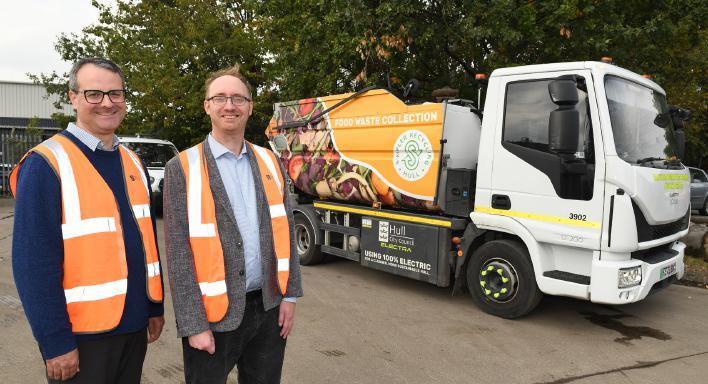






































































Forrester Boyd Chartered Accountants is proud to announce the success of its charity golf event held yesterday at Grimsby Golf Club in support of The Bradbury Foundation. Despite torrential rain that forced play to be cut short, the day proved to be a remarkable demonstration of community spirit, raising an incredible £7,000 for the charity.
The event brought together more than 110 participants, including local businesses and sponsors from across Lincolnshire, all united in their support for The Bradbury Foundation. The foundation, set up to provide vital support for community initiatives and charitable projects across the region, benefitted enormously from the generosity of those in attendance.
While the weather conditions may have challenged even the most seasoned golfers, spirits remained high throughout the day. Teams teed off in the morning with optimism, and although heavy rain meant the competition was called off earlier than planned, participants and supporters ensured the event still achieved its fundraising goals.
Kingsbridge Corporate Solutions took home the coveted tournament trophy posting a brilliant score of 92 with BRR Law and Forrester Boyd’s Louth team rounding out the top three. The funds raised from
the event will go directly to The Bradbury Foundation to support its work in enriching local communities, helping charitable projects, and ensuring lasting impact across the region. Forrester Boyd has been a long-standing advocate of community engagement and charitable giving, and the event highlighted the strength of partnership between the firm, local businesses, and the community at large.
Speaking after the event, Phil George, Business Development Partner at Forrester Boyd, said:
‘We are absolutely delighted with the outcome of the golf day. The weather may not have been on our side, but the determination and generosity of our attendees more than made up for it. To raise £7,000 is an outstanding result, and we are hugely grateful to everyone who supported the event. It really shows what can be achieved when the business community and individuals come together for a common cause.’
The bursary is sponsored by broadband provider, Quickline Communications
50 students studying technical subjects through the Lincolnshire Institute of Technology have become the first to receive a bursary that aims to make education more accessible.
The Quickline Communications bursary supports students from underrepresented groups, including mature students, parents, people from low income families, people with a disability and people who were previously in care.
Each student has received a grant of up to £1,000 for things such as laptops, headphones, desk chairs and cameras, as well as travel expenses and course fees.
Catherine (Cam) Reeves is one of these students and is currently completing a course at Grantham College. They said: “I was born in the UK and my education began here, but my family moved to South Africa before I could complete it. I wanted to return to the UK to obtain a degree only to find that, as I hadn’t been living in the UK for the last three years, I would be unable to access the student loan system.
“The Quickline Communications bursary fund has been a life saver and has enabled me to continue with my studies and live away from home. With the support from the bursary, I am confident that I will be able to complete my level 4 in Film and TV.”
Mick Lochran, Director of the Lincolnshire Institute of Technology, said: “It’s fantastic to see that our partnership with Quickline Communications has started to truly make a difference to our students.
“We believe that everyone has the right to access education and gain the skills they need to succeed, and the bursary is helping us to remove the barriers that underrepresented groups face when enrolling for, attending and achieving higher-level technical qualifications.
“We’re extremely grateful to Quickline Communications for their support and look forward to hearing how the bursary helps other students in the future.”
Julian Chalk, Head of Engagement and Enablement at Quickline Communications, added: “It’s great to hear that the bursary has already benefited 50 students who are studying technical subjects across Lincolnshire.
“We’re big on accessibility and inclusivity, and it’s a key part of what we do - connecting rural communities that have been left behind by other providers. Now, we’re not only ensuring everyone has access to decent broadband but we’re also ensuring that everyone has access to the education they need to thrive in a STEM career.”

The event also would not have been possible without the support of sponsors and donors, whose contributions helped make the day memorable. From local businesses sponsoring holes to raffle prizes donated by generous supporters, every contribution played a role in helping The Bradbury Foundation.
Forrester Boyd and The Bradbury Foundation are already looking ahead to next year’s charity golf event, with hopes for kinder weather and another chance to bring people together for a great cause. Plans are already underway to make the 2026 event even bigger and better, building on the momentum and goodwill created this year.

The Lincolnshire Institute of Technology also works with nine education partners across the county - the University of Lincoln, University Campus North Lincolnshire, University Centre Grimsby, Boston College, Grantham College & University Centre, Lincoln College, Riseholme College, Lincoln UTC and Stamford College.
It is part of a national network of 21 IoTs, made up of experienced education providers and leading employers across England. Backed by £290 million of government investment, each IoT focuses on specialisms to suit their location, with the aim to fill immediate skills gaps while building a pipeline of talent for the future.
To find out more about the Lincolnshire Institute of Technology, please visit www.liot.ac.uk.
Forrester Boyd Chartered Accountants is proud to receive the bronze award at the prestigious award ceremony in London for the annual Accounting Excellence Awards
Shortlisted in the Large Firm of the Year category, Forrester Boyd were up against some goliaths in the accountancy field. With 10 firms on the shortlist, Forrester Boyd came away with the bronze accolade.
Philip George, partner at Forrester Boyd stated, ‘I am so incredibly proud of this achievement. To get bronze in the large practice category really is a fantastic recognition of Forrester Boyd’s continued success.’
Winning the gold spot was top 25 firm AAB. The event, held at the Roundhouse in Camden, brought together leading accountancy firms from across the UK to celebrate excellence, innovation, and dedication within the profession.
Speaking about the award, Jim Livermore, Chief Operations Officer for Forrester Boyd said: “This is an amazing endorsement for all the team at Forrester Boyd to be immensely proud of. Results and recognition such as this do not come along without the hard work,

loyalty and dedication of an amazing team who work across all offices of Forrester Boyd.’
This accolade comes on the back of success at the Yorkshire Accountancy Awards earlier in the year where the firm came away with the Mid-Tier Firm of the Year. The award criteria for the annual Accounting Excellence awards is a bit different from the Yorkshire Awards pushing Forrester Boyd into the Large Firm category. This does make the competition that much stiffer as it puts the Lincolnshire and
Yorkshire based firm up against the giants in the industry.
The firm extends its gratitude to its clients, colleagues and to the judges at the Accounting Excellence Awards for this prestigious recognition.
For more information about Forrester Boyd Chartered Accountants and the services they offer, please visit www.forrester-boyd.co.uk.













A Management Buyout (MBO) can be a powerful exit strategy, both for business owners seeking to retire or move on, and for management teams who have the ambition to take over ownership. Rather than selling to an external buyer or competitor, an MBO keeps the business within the existing leadership, offering continuity and a sense of security for both employees and customers.
Management buyouts aren’t just about financial transactions; they’re often about preserving the essence of the business. If you’re an owner considering an exit or a manager looking to take the reins, understanding the MBO process and its benefits is crucial.
While every buyout is unique, the fundamental structure of an MBO follows a familiar path. It generally begins with the owner and management team recognising a shared interest in maintaining continuity within the business. From there, both parties will need to assess the business’s value—a process that often involves external advisors conducting an in-depth financial evaluation. But that’s just the beginning.
One of the most critical aspects of an MBO is securing financing. This isn’t always
straightforward, especially for larger companies where the buyout cost can be significant. Financing is often used, with banks stepping in to fund the purchase. Vendor financing may also play a role, with the business owner deferring part of the payment until after the sale. Financing can be the trickiest part of the process, and in some cases, it may mean restructuring the business to ensure that future debt repayments can be comfortably managed.
Once the financing is arranged, the deal moves into the final stages, where the legal side of the transfer is formalised. At this point, the management team assumes ownership, and the transition officially begins.
For a business owner, one of the key advantages of an MBO is that the company
stays in familiar hands. This isn’t just about ensuring smooth day-to-day operations—it’s about maintaining relationships, culture, and legacy. For many owners, these aspects are as important as the financial details of the sale.
An MBO can also be less disruptive than other exit strategies, such as a sale to an external party. The management team already knows the business, understands its challenges, and is familiar with its strategic goals. This reduces the learning curve that a new buyer might face and helps maintain stability in the business.
For the management team, the opportunity to own the business they’ve been running is often highly motivating. Becoming the owner gives them control over their future and a personal stake in the company’s success. It’s not just about buying the business; it’s about having the opportunity to grow and develop it further. >>>
MBOs do come with their challenges. Securing financing can be difficult, especially for smaller management teams that may not have deep pockets. While private equity or bank loans are common ways to fund MBOs, these can sometimes lead to over-leveraging, where the company takes on more debt than it can comfortably manage.
There’s also the issue of balancing the buyout process with the ongoing demands of running the business. Management teams often have to juggle their daily responsibilities while also planning the buyout, negotiating with lenders, and handling legal matters. This can be a demanding time, and careful planning is required to ensure that the business doesn’t suffer during the transition.
Not every business is suited to a management buyout. It requires a strong, cohesive management team with the skills and vision to lead the company forward. Additionally, the financial structure must be sound. Without careful financial planning, an MBO can place significant strain on the business post-sale,


particularly if the buyout is financed through heavy debt.
However, when done well, an MBO offers a way to ensure that a business continues to grow and succeed under familiar leadership. For owners who care deeply about the future of their business, an MBO can be a way to exit with peace of mind, knowing that the legacy they’ve built is in good hands.
A management buyout is just one option within the wider world of succession
planning. Every business is different, and the best solution depends on your personal goals, the strength of your team, and the long-term prospects of your company. Whether you’re an owner thinking about your eventual exit or a management team considering the possibility of ownership, early planning and the right professional advice can make all the difference.
If you would like support in exploring your options or guidance tailored to your situation, the team at Forrester Boyd is here to help. Get in touch with them today by emailing info@forrester-boyd.co.uk.


In the corporate world, titles are often used liberally. Calling someone a “director” might seem like a harmless way of recognising seniority or impressing clients. But in law, that label carries far more than prestige. Even without a formal board appointment, individuals may find themselves treated as directors, and exposed to the full weight of directors’ duties and liabilities.
Two types of “non-directors” are recognised by law. A de facto director is someone who acts like one by making decisions, signing off deals, or representing themselves as part of the board, without official appointment. A shadow director, by contrast, avoids the spotlight but influences the company by having their directions habitually followed by those who are formally appointed.
Both roles carry the same obligations as a statutory director under the Companies Act 2006, and as such they can also be caught by the Insolvency Act 1986 and the Company Directors Disqualification Act 1986. Put simply, they can find themselves shoulders all the responsibilities of a director and exposure to claims, but without the authority, without the authority, protection that comes with formal appointment, or even the awareness that you have crossed that line.
Once you are deemed to be a director (be that de facto or shadow) the law expects you to meet fiduciary duties. That includes acting in the company’s best interests, declaring conflicts of interest, and not exploiting corporate opportunities for personal gain. Breaching those duties is not theoretical. Individuals can be sued, ordered to repay losses, and forced to hand back any personal profits.
Civil liability is only part of the picture. Proceedings may damage reputations beyond repair, with regulators, insolvency practitioners, and the press taking an interest. And unlike formally appointed directors, de facto and shadow directors are generally not protected by Directors and Officers (D&O) insurance. Insurers often decline cover where the
individual has no formal status, leaving them exposed to potentially ruinous legal costs and damages awards when things go array.
The risks become most acute when a company enters financial difficulty. Insolvency practitioners will quickly look past paperwork and examine who was truly making decisions. If a de facto or shadow director was involved, they may be held personally liable for wrongful trading (eg, continuing to take on debts when insolvency was inevitable), or even fraudulent trading, which can bring criminal sanctions.
Financial consequences can be severe. Courts have the power to order personal contributions to a company’s creditors, often running into six figures. Beyond that, individuals can be disqualified from acting as a director of any UK company for up to 15 years. News of disqualification is public and permanent, leaving a digital trail that can follow someone’s career indefinitely.
One of the most common pitfalls arises from job titles. In many organisations, the title “director” is given as a badge of honour without any formal link to the board. Think “Sales Director” or “Operations Director” which come with seniority and managerial duties, but not necessarily directorial ones. However, courts will look at appearances, not just role descriptions, and if someone is held out publicly as a director, through contracts, websites, or email signatures, the law may conclude that they were indeed acting as one.
That can create real-world consequences. An individual may bind a company to contractual commitments they were never authorised to make. If the company collapses, they may

be dragged into insolvency proceedings, even if they thought the title was merely cosmetic. Employment law complications also arise. Individuals may argue their role was misrepresented, or that they were burdened with director-level responsibilities without proper recognition or reward.
So what can businesses do? The safest course is to align titles with reality. If someone is performing the role of a director, formalise their appointment and provide training on their legal duties. If not, avoid handing out director-level titles casually, however tempting it may be for morale or marketing.
Companies should regularly review job titles and responsibilities, and ensure managers understand the risks of informal leadership roles. Where responsibilities blur, as they often do in startups and family businesses, taking legal advice can help clarify boundaries before a problem arises.
The law is clear on this. It is not just what you call yourself that matters, but also what you do. Many people drift into de facto or shadow directorships without realising it, particularly in fast-moving or founder-led companies. Yet ignorance is no defence. The consequences of crossing that invisible line can be catastrophic, from personal financial liability to careerending disqualification.
For businesses and individuals alike, clarity is the best protection. Titles should reflect reality, responsibilities should be defined, and everyone involved should understand the weight that comes with being, or acting as a director.
Businesses in Hull and East Yorkshire wishing to upskill existing staff or train new employees, as well as individuals aiming to further their careers, are invited to apply for the next phase of Skills Bootcamps.
Individuals can access fully funded courses available in Logistics and Warehousing, Tax Basics AAT L4 and Certificates in Bookkeeping Level 2 & 3 and HGV Driving, Pathway A, with new delivery partners also on board.
Employers enrolling staff on these courses may be eligible for course costs funding of between 70-90 per cent.
Bids to deliver Skills Bootcamps are welcome this month, ahead of new courses starting in October which will be delivered in person or online.
The scheme, managed by Skills Bootcamps Hull & East Riding, is part of Hull Training and Adult Education, which offers quick, employerled training in high-demand sectors like digital, transport and green technologies.
The programme equips local residents with the skills needed to access jobs - supporting social mobility and in-work progression. The latest batch of courses are an opportunity
for businesses to register their current staff and upskill them, as well as individuals currently in work wishing to enhance their careers.
The great news is that unemployed individuals enrolled are guaranteed a job interview upon completion of their course.
All courses are financed through record breaking funding from the Department of Education for Wave 6 of the Skills Bootcamps programme.
Employers of all sizes can access the funding through Hull and East Riding YORtender to create new, bespoke courses, either independently or in partnership with training providers.
This will help plug skills gaps for in-demand sectors to increase company productivity and growth.
Cllr Linda Tock, portfolio holder for Hull Training at Hull City Council, said:
“Skills Bootcamps play a vital role in advancing the council’s priorities by driving inclusive economic growth and ensuring that learners can thrive and meet the challenges of tomorrow.
“A skilled workforce is a productive workforce and it is only through giving them the relevant skills, training and support that they can play their part in driving forward the Hull and East Yorkshire economy.
“This latest enrolment is a great opportunity for more businesses and individuals to upskill and improve themselves.”
Businesses interested in becoming a training provider or upskilling their staff should contact jo.silverwood@hullcc.gov.uk.
Individuals interested in enrolling on a course should contact gillian.kilvington@hullcc.gov.uk.

Key figures from across business, local government, and the community came together last week to celebrate a major milestone in the development of Horizon Youth Zone – a multi-million pound facility set to transform opportunities for young people in North East Lincolnshire.

This marks the first official look inside the new youth zone, which is due to open early next year. With the scaffolding now removed, the stunning restoration and repurposing of the Grade II-listed West Haven Maltings – formerly a warehouse and grain store – is now fully visible. Alongside these heritage buildings, a brand-new sports hall has been constructed, complemented by a large outdoor multi-use games area (MUGA).
Horizon Youth Zone will be open to young people aged eight to 19, and up to 25 for those with additional needs. It will offer a wide range of activities and state-of-the-art facilities, including:
• A climbing wall
• Music room with built-in recording studio
• Performing arts space
• Arts and crafts area
• Maker zone with 3D printing equipment and kiln
• 3G kick pitch
• Boxing gym
• Sports hall
• Fitness suite
Part of the national OnSide network of 16 Youth Zones, Horizon has been designed with young people, for young people - helping them discover new passions, build confidence, and develop valuable life skills.
The project is being overseen by a dedicated board made up of representatives from business, local government, and the community, all committed to creating a space that inspires and empowers the next generation. Decisions on the interior design including paint colours, layout and



artwork are being led by the Young People’s Development Group (YPDG), made up of young people from across the area who have been involved since the very beginning. They have also been involved with recruitment and design of the branding, including the name ‘Horizon.’
Councillor Phillip Jackson, Leader of North East Lincolnshire Council, said:
“I’m blown away by the transformation of this space. The restoration work has beautifully preserved the building’s heritage while creating a vibrant, modern environment for future generations. Horizon Youth Zone is set to be a real gamechanger for our town - not just because of the incredible facilities, but because of what it stands for.
“It’s about raising aspirations, helping young people to discover new skills, and showing them what’s possible.
“This is all part of our strategy to open-up the heart of Grimsby, offering more unique experiences to attract greater numbers of people to our town centre.
I’m incredibly proud of the partnership behind this project. Alongside the wider regeneration happening, it’s a really exciting time for Grimsby.”
Lucy Ottowell-Keys, CEO of Horizon said:
“This first-look event marks a significant milestone in Horizon’s journey. It’s incredibly exciting to welcome those who’ve played a vital role in turning this vision into reality. Together, we’re one step closer to inspiring new ambition and creating meaningful opportunities for the young people of North East Lincolnshire.”
Senior project manager Katy Robinson has been named the UK’s Most Influential Woman In Construction.
Katy, who has worked for East Riding of Yorkshire Council’s infrastructure and facilities department for five years, was honoured with the prestigious overall title at the national 100 Most Influential Women In Construction Awards 2025, held by the Construction Industry Training Board (CITB).
She also won the Local Hero award for the North East region at ceremony.
The 26-year-old, from Driffield, won the awards for spearheading a nationwide campaign calling for more inclusive Personal Protective Equipment (PPE) for women working in the construction industry, who can find workwear ill-fitting and unsafe.
Katy said: “I feel honoured and deeply grateful. To win these awards during the same week that our new British Standard BS 30417 – Provision of Inclusive PPE – has been released feels like a full-circle moment.
“I’m so proud of what we’ve achieved, and I’m so inspired by the incredible people across the construction industry who are driving progress and change in their own ways.”
Despite her relatively short career, Katy has already achieved five other national and regional awards, including Technical Apprentice of the Year, Hull & Humber Top 30 Under 30 and a Future Leaders award.
She is also the campaign Leader for the National Association of Women in Construction for Yorkshire (NAWIC).
Katy said: “When I began the PPE campaign two years ago, I couldn’t have imagined the journey it would take me on.
“From highlighting the clear need for change, to building awareness through webinars and seminars, receiving national media coverage, working closely with the British Standards Institute, and even gaining recognition in Parliament – it has been an incredible effort to drive meaningful change.

“The release of the new British Standard marks the achievement of one of the campaign’s main goals, but, this is not the end of the journey – rather the beginning of a wider culture shift.
“I’m looking forward to seeing how the standard is adopted, not only in construction, but in all other industries too.”
East Riding of Yorkshire Council has been at the forefront of Katy’s PPE campaign by offering inclusive workwear for staff, and also wrote to the Government urging inclusive PPE become compulsory in the industry.
During her time at the council, Katy has been involved in a number of high profile projects as assistant project manager and project manager, including the construction of the RaisE Business Centre at Goole, the building of St Anne’s School and Sixth Form College and Appleton Court Extra Care Facility, both at Hessle, the Mill outdoor gym at East Riding Leisure Beverley and a number of affordable and sheltered housing schemes across the East Riding.
Councillor Gary McMaster, the council’s cabinet member for planning, housing and infrastructure, said: “Congratulations to Katy for
achieving such a prestigious, national honour for leading such a successful campaign.
“Katy is a real shining star in the industry, and we are lucky to have her expertise at the council.”
Deborah Madden, executive director, nations engagement at the CITB, said: “Katy’s excellent work around changing the structure of PPE for women and overcoming the challenges of co-ordinating and negotiating school engagement are examples of the impact that Katy has brought to her projects and the wider industry.
“Katy has also shown support and commitment to other women in construction while developing her own skills and knowledge and raising awareness of the opportunities available for women across the built environment.
“Katy’s nomination clearly demonstrated her resilience and leadership – and how she faces challenges head-on to achieve a positive impact on barriers to change.”
A
major refurbishment of a popular pedestrianised street in Hessle is to get underway in October.
East Riding of Yorkshire Council is due to begin a £700,000 scheme to replace the existing paving with new stonework on the busy shopping area in Prestongate, Hessle.
The improvement work started on Monday 6 October and is scheduled to finish by March.
The project, which has been funded by the Hull and East Yorkshire Devolution deal, will involve transforming the current patchwork of block paving, flagstones and concrete surfacing with new, attractive stone paving.
New street furniture and planters will also be installed to benefit the area.
The new surface is designed to enhance the visual appeal of the street, support the area’s cafe culture and shopping environment, and be functional for shoppers, businesses and their delivery lorries.
The council carried out consultations with the

traders, shoppers and Hessle Town Council to shape the project.
Councillor Paul West, the council’s cabinet member for environment and transport, said: “There have been longstanding concerns about the street’s appearance and safety, following years of patching in the paving left by repairs and work by utility companies, but our aim is to transform this area for the better.
“Our engineers have worked closely with town councillors, residents and

shop owners to develop a design for Prestongate that reflects the needs of the community and enhances the look of the street.
“The response to the consultations we carried out was overwhelmingly positive.
“We have also worked closely with the contractor to phase the works in a way that minimises disruption to shoppers and businesses and maintains access for all.”
Pedestrians will have access to all shops throughout the work, although there will be some limits to vehicle access due to the nature of the construction. Some work will be carried out outside of business hours.
The scheme will be paused during December to support the festive trading period
The work will be carried out on behalf of the council by contractor PBS Construction (North East) Ltd.


Hull City Council has taken a further step towards its climate goals and improving air quality with the introduction of its first fully electric food waste collection vehicle.
The council’s waste management team is now operating its largest electric vehicle to date – a brand-new 12.5 tonne electric truck dedicated to food waste collection.
This addition to the fleet will support the government’s Simpler Recycling initiative, including weekly food and garden waste collections, which will be composted locally for use in horticulture and agriculture.
With a growing fleet of over 60 zero-emission battery electric vehicles (BEVs) – including cars, vans, and now a truck – the council operates one of the largest electric fleets in the region.
Previously, these vehicles would have been powered by diesel engines, contributing to greenhouse gas emissions and poor air quality. Now, as part of a phased replacement programme, the council is retiring older vehicles and replacing them with fully electric alternatives.
This latest investment marks a significant milestone in the council’s journey to achieve net zero emissions by 2045.
Fleet vehicles are currently the council’s second-largest source of carbon emissions, so transitioning to electric vehicles plays a vital role in reducing the organisation’s overall carbon footprint, as well as improving air quality. In addition to being

environmentally friendly, electric vehicles are quieter, more efficient, and easier to maintain.
With transport – particularly road transport - now the UK’s largest contributor to climate change, the council continues to invest in cleaner, greener alternatives to help build a more sustainable Hull.
Councillor Mark Ieronimo, cabinet portfolio holder for transport and infrastructure at Hull City Council, said: “Introducing our first fully electric food waste vehicle is another big step forward in our journey to tackle climate change.
“We’re proud to be leading the way in Hull, with one of the largest electric fleets in the region. Every vehicle we add helps reduce carbon emissions, creating a more sustainable transport fleet.”
Councillor Quinn, portfolio holder for environment at Hull City Council, said: “By using an electric vehicle to collect waste, we can create a more sustainable Hull, not just for today, but for future generations.
“We’re proud to be making these changes. Every electric vehicle we add to our fleet is a step towards improving the air we breathe and reducing our impact on the planet.”

With new legislation surrounding commercial recycling already in play, we are here to help with knowledgeable advice and potentially cost-effective solutions. From 31 March 2025, businesses with more than 10 full time equivalent employees must sperate collections of both recycling waste and food waste. By March 2027 this will extend to ALL businesses.

















Rainham Steel proudly stands as proof to a remarkable five-decade commitment to the construction industry. Having just celebrated its 50-year anniversary, the company takes a reflective pause to look back on a journey that commenced in 1973. Rooted in constant values of customer satisfaction, technological progress, and environmental responsibility, Rainham Steel has risen to become an industry leader in the realm of supplying and delivering quality constructional steel products. Its reputation for excellence extends from its distribution hubs in North Lincolnshire and London, providing nationwide coverage to the construction industry.

Pioneering Infrastructure: A Network of Growth: With a strategic vision in mind, in 2002, Rainham Steel positioned itself in North Lincolnshire, and with constant investment, now boasts four expansive sites in and around the Scunthorpe area. These locations were handpicked for their central accessibility to the entire UK and proximity to crucial dock facilities for seamless imports and exports. Covering over 120 acres, Rainham Steel’s sites feature state-of-the-art warehouse facilities spanning more than 300,000 sqft. The company’s recent investment of over £5 million in advanced steel processing machinery showcases its commitment to innovation and efficiency.

A Tradition of Excellence: Meeting Customer Expectations: Rainham Steel’s foundation was built on delivering products that exceed customer expectations. Specializing in the supply of Universal Beams, Universal Columns, Channels, Angles, Large Flats, and Structural Hollow Sections, the company has established itself as a trusted partner for major Steel Fabricators, Stockholders, Construction Companies, Civil Engineers, and Builders Merchants. Rainham Steel’s commitment to timely supply and delivery remains unwavering, ensuring that each project’s needs are met with precision, reliability, and value.
For approximately three decades, Rainham Steel has also been running a reinforcement processing facility at its headquarters in Rainham, Essex catering to the construction sector in both London and the wider Southeast of England. Just three years ago, the company transitioned to a new 10-acre head office development site, with a £10 million investment.


Trailblazing Progress: Embracing Sustainability: Rainham Steel’s journey is not just marked by milestones but also by its resolute dedication to sustainability. With an annual turnover exceeding £200 million and a team of over 200 across all locations, the company operates with a fleet of more than 50 HGV vehicles, streamlining deliveries and minimizing environmental impact. At any time, holding over 150,000 tonnes of products in stock across its UK sites, Rainham Steel has embraced the future with its current stock range including CELSA ‘EAF’ ultra-low carbon ‘Green Steel,’ and ‘EAF’ steel from other major European suppliers to align its practices with the evolving demands of eco-conscious and low carbon construction.

Investment for Tomorrow: A Vision of Growth: The story of Rainham Steel is one of perpetual development. With over £40 million already invested in developing the North Lincolnshire sites, the company’s ambitious plans continue to evolve. Francis Micallef, Operations Director, details the development of a reinforcement processing hub on the banks of the River Trent at Althorpe which has obtained full CARES approval and commenced production In February 2024. This 17-acre storage facility, purchased in March 2023 at a cost of £2.7 million, has been transformed into a state-of-the-art reinforcement processing facility, with a further investment of £3.5 million in cutting edge rebar processing machines and technology, including cranes, and other plant. The production plant includes a groundbreaking fully automated ‘Ground Buffer and Lake’ solution, the first in the UK. He goes on to say how a team of 20 have been employed so far at the site and current production is at 100 tonnes per day. This underlines Rainham Steel’s enduring commitment to innovation and progress, as well as the company’s long-term growth plans in Scunthorpe and the North Lincolnshire region.


A Vision Beyond: Anticipating the Future: As Rainham Steel gears up production at the Althorpe facility, expansion plans are already underway for a purpose-built 200,000 sqft facility at the new site. With production scheduled to commence next year, the site is poised to produce an impressive 50,000 tonnes of reinforcement annually. Bolstered by ongoing operator training, this expansion is expected to create 40 more local jobs. With a constant forward-looking approach, Rainham Steel is set to channel a further £15 million in investment into its growth plans in the next two years, underscoring its commitment to both pioneering solutions and sustainability.

As Rainham Steel marked its five-decade anniversary its story is one of dedication, innovation, and an unwavering commitment to customer satisfaction. From its humble beginnings in 1973 to its current position as a leading innovator in the UK steel industry, Rainham Steel stands as a symbol of growth, adaptability, and environmental responsibility. With its sights firmly set on the future, Rainham Steel is poised to continue shaping the construction landscape, with its unwavering commitment to quality, innovation, and value.


It’s an exciting year for Kingston Engineering, the Hull-based precision engineering company with a global reputation for delivering solutions to the most demanding specifications.
Kingston Engineering is renowned for the ability to meet complex and challenging precision requirements, combining over a century of engineering expertise with advanced technology. The company manufactures to the highest quality and adheres to universal British, European, and American standards.
A strategy of continued investment has led to the installation of two new Hwacheon machines at the Kingston Engineering site this year. This recent investment strengthens the company’s ability to deliver custom-built power screws, components, and assemblies manufactured to the highest levels of accuracy and performance.
As pioneers in precision manufacturing, Kingston Engineering’s investment in two highperformance machines from the manufacturer
Hwacheon, enables the company to continue to provide advanced precision solutions to customers across the globe.
A new Hwacheon Hi-Tech 200B arrived on the machine shop floor at Kingston Engineering in the first part of the year. The Hwacheon HiTech 200B is distinguished by its solid machine beds, wide flat guides and powerful drives, capable of handling the most demanding machining requirements. This horizontal turning centre is a proven, multifunctional, highly customisable machine, equipped with advanced features, capable of handling complex machining tasks. The durable design and air pressure assisted construction enables smooth vibration free movement, to enable exceptional machining quality and process reliability. The new Hwacheon HiTech 200B ensures the superior production
and performance of ultra-precision complex components with intricate features.
In early September 2025, Kingston Engineering completed the installation of a new Hwacheon Vesta-1300B+, a 4-axis vertical machining centre. This machine has a large X-axis travel distance of 1300mm with box guideways features, for added stability in heavy-duty machining applications. The Hwacheon Vesta-1300B+ machine is particularly suitable for ductile materials such as copper, aluminium, and steel. Renowned for enabling exceptionally high cutting rates, this machine further expands Kingston Engineering’s already impressive capabilities and facilities.
Both of these high-performance Hwacheon machines are welcome additions to the already extensive machine base on the machine shop floor at Kingston
Paul Bielby, director of Kingston Engineering comments,
“Our most recent investment in two new Hwacheon machines is part of the ambitious growth plan for the future that we’ve set ourselves and another proud milestone for Kingston Engineering. As the demand in the industry for complex shapes, features and accuracy levels increases, we want Kingston Engineering to remain at the forefront of advanced precision manufacturing. Continued investment ensures that we’re fulfilling the needs of what modern industry needs today. Our plan is to continue investing in view of our future’”.
Engineering’s site on Pennington Street. It further enhances Kingston Engineering’s reputation as a leader in advanced precision manufacturing.
Kingston Engineering’s investment this year is a testament to the company’s commitment to advanced technologies and delivering the highest quality precision solutions to customers across the globe.
Kingston Engineering manufacture advanced, ultra-precision components that empower innovations in so many industry sectors such as medical, pharmaceutical, energy & water, aerospace, space exploration, oil & gas, and manufacturing. Their work plays a vital role in providing advanced precision solutions with diverse

end-use applications.. As leading precision engineers, Kingston Engineering is at the forefront of the next generation of precision engineering.
A strong heritage dating back to 1919 With origins deeply rooted in Hull, Kingston Engineering has an impressive engineering heritage spanning over 106 years.
The company’s success is the result of its focus on moving the business forward and embracing new technologies. There has been continuous investment in cuttingedge machines and in-house facilities at the Kingston Engineering site, based on Hull’s Pennington Street. Kingston Engineering is committed to nurturing the next generation of engineers through its apprenticeship programme and places a strong emphasis on skills development.
With its latest investment, coupled with a strong heritage of skill and precision manufacturing expertise, Kingston Engineering is preparing the foundations for future growth. The company is committed to working in the most sustainable way possible with sustainable work practices integrated into day to day operations at the site. They will continue to manufacture with sustainability always at the core.
As the demand for higher levels of precision accuracy and complexity increases Kingston Engineering is committed to delivering precision solutions that empower innovation across the globe. Continued Investment will provide a platform for further growth for Kingston Engineering to lead the way in shaping precision engineering of the future.




Hull has once again shown the power of community and collaboration on a global stage, as Hull College, Smith + Nephew, Think Mental Health, and Think Cloud came together to officially set a new GUINNESS WORLD RECORDS title for the most users in a mental health awareness video lesson on World Mental Health Day (Friday 10th October).
The collaboration successfully broke the record for the most users, with 916 verified participants and over 1,400 people involved at one point during the live session - surpassing the previous record of 770.
Staff and students from Hull College were joined by colleagues from Smith + Nephew and Think Cloud, along with participants from across the globe - including the United Kingdom, United States, Canada, Mexico, Costa Rica, India, Italy, Spain, Portugal, France, Germany, China, Poland, and more - for a shared moment of reflection, learning, and conversation about mental health.
The achievement has now been officially recognised by Guinness World Records marking a proud milestone for Hull and everyone involved.
At its heart, the initiative aimed to raise awareness of mental health and emphasise the importance of looking after one another, breaking down stigma and encouraging
people to speak openly and compassionately about wellbeing.
Hull College Principal & CEO Debra Gray MBE said: “We are incredibly proud that this world record was set right here in Hull. It’s a testament to what can be achieved when education, business, and the community come together with a shared purpose. Mental health matters to all of us, and this initiative highlights how powerful collective action can be in creating positive change. To see Hull at the centre of a global event like this is truly inspiring.”
Paul Longley, Founder of Think Mental Health, added: “This record is more than just a number - it’s a message to the world. When we come together to talk about mental health, we break down barriers and show that no one has to face their struggles alone. Seeing people join from across the world,
united by one goal, was an incredibly proud moment for Hull and for myself personally.”
Jon Allanson, Director Regional Regulatory & Commercial Quality Operations at Smith + Nephew, said: “At Smith + Nephew, we are deeply committed to supporting health and wellbeing in every sense. Being part of this record-breaking event, led from our home city, reflects the spirit of innovation, care, and collaboration that defines Hull. It’s fantastic to see our community leading the way on such an important global issue and just goes to show how much we can achieve when we all pull together.”
The event, hosted online and supported by Hull-based technology specialists Think Cloud, demonstrated the power of digital connectivity in tackling vital issues and showed how one city’s vision can make a worldwide impact.
Colleagues and business associates have marked a milestone anniversary of a highly respected family business owner with praise for his “incredible dedication” and inspirational leadership.
Peter Brown, CEO of Neill & Brown Global Logistics, has clocked up 60 years at the well-known East Yorkshire company which has been trading for 108 years.
An ice cream van pulled up to the Hessle site near Hull on September 1 so employees could celebrate with a sweet treat, with many reminiscing about their long career and relationship with Mr Brown.
It was a fun nod to his start with the company. Working at a Hornsea amusement arcade as a teenager he protested when his father said in no uncertain terms: “You are coming to work for me at Neill & Brown from next week!”
Starting in 1965 in the post room, he soon moved through the ranks becoming MD in 1977 and then CEO in 2013. For many years working a sevenday week, he steadily grew the company which now provides comprehensive logistics services over two Humber sites and employs 145 people.

Alan Johnson, former MP for Hull West and Hessle commented: “One of the delights of being a local MP was discovering great businesses bringing jobs and prosperity to my constituents, and I soon realised that a top European logistics company was on my patch. Dealing with Peter established a relationship of respect and admiration that has transcended my time in politics.”
Within the company, employees were keen to express their appreciation, with handyman Phil Hawes saying: “I’m proud to say that I was Peter’s first HGV driver. He’s always been fair and calls a spade a spade. He’s a great boss and I wish good luck for the next 60 years!”
Logistics director Carl Andrew who joined as a school leaver in 1990 said: “Over the years, Peter has been a huge mentor to me and others; always supportive when discussing plans and offering honest, valuable opinions.
“His eye for detail and immense knowledge has shaped this company and inspired every person who works here. These high standards flow down from the very top, and it’s a legacy we all benefit from.”

Managing director Colin Moody, who joined Neill & Brown in 1981 as an office junior, said that much of the company’s success was founded on Peter’s leadership and him rewarding hard work. “It took me time to gain his trust, but when I did, he proved to be incredibly loyal and supportive.”
Ian Middleton, owner of Crossroads Truck and Bus, which has supplied Neill & Brown with more than 150 Volvo trucks over 43 years, said: “The culture Peter has built amongst his employees is renowned within the industry.
“Negotiating on a deal is always a challenge as he always has his costings at his fingertips and is quick to firmly justify the figures. I have learnt over the years that the way to his heart is to take him for fish ‘n’ chips. He then lets me pay and negotiates a little more discount before we agree with a gentleman’s handshake!”
Further afield, Netherlands-based KDS logistics’ Karel van Suchtelen said: “We regard Peter as one of the best men in transport and logistics, and over 20 years we have learned a lot from him. We respect him not only as a businessman, but also a friend.”
A highly active member of the Humber region’s business community, Mr Brown was a founder of the privately led World Trade Centre Hull & Humber in the 1990s and has always believed in Neill & Brown being closely involved in local initiatives, which includes support for Hull’s cultural ambitions through membership of Hull Business Angels.
In a media business profile more than 20 years’ ago, he stated his ambition was to make the company more successful without losing the personal touch, for which Neill & Brown is still well known.
He also declared: “There’s plenty of business out there; don’t complain how bad things are, go out and get it!”

Humber Freeport has welcomed planning approval for two major developments within the Freeport’s Goole tax site.
East Riding of Yorkshire Council’s Planning Committee has granted full planning permission to Finnish manufacturer Metsä Tissue and commercial property developer Wykeland Group to create the UK’s largest tissue paper mill, together with office space and associated infrastructure.
The facility, which will extend to around three million sq ft of space once complete, will be built in phases, supporting up to 400 direct jobs and creating a breadth of supply chain opportunities. It aims to increase the UK’s self-sufficiency in the manufacture of essential tissue products by more than 30 per cent.
At the same Planning Committee meeting, Henry Boot Developments (HBD) and landowner St John’s College Cambridge received outline planning consent for an industrial and manufacturing park.
That development sits on the south side of the Goole tax site, separated from the Metsä plot by the M62 motorway, and will create more than five million sq ft of industrial space. The site could accommodate buildings from 40,000 sq ft to one million sq ft.
Both planning approvals are subject to conditions and the signing of legal agreements.
Professor Neal Juster, Interim Chair of Humber Freeport, said: “This is another very significant step forward for Humber Freeport, and for the two large-scale developments within our Goole tax site. It adds to the powerful momentum behind the Freeport.
“For Goole, it is further recognition of the strength of the investment proposition in the town. Its strategic location, connectivity and infrastructure make it an ideal location to invest, creating high-quality direct employment and supply chain opportunities.
“We’re delighted to see Metsä Tissue and Wykeland Group secure planning permission for the tissue paper mill. It is an important investment not just for Goole, but for the wider region, boosting the Humber’s credentials as a hotbed for advanced, sustainable manufacturing.
“A further economic uplift will be created by HBD and St John’s College Cambridge’s industrial and manufacturing park. Outline permission for this industrial cluster will enable the developers to market specific opportunities and take forward the strong pipeline of enquiries for the site.”


Goole is one of three Humber Freeport tax sites, alongside Hull East and Able Humber Port, near Immingham.
The Goole site offers exceptional transport links and connectivity via road, rail and sea, and sits adjacent to existing developments from leading businesses including Siemens Mobility, Tesco and Guardian Glass.
Investing in a freeport tax site provides businesses with a range of incentives, ranging from enhanced capital allowances and employer National Insurance contributions to stamp duty land tax relief.
The two newly-approved developments in Goole underline the strategic importance of Humber Freeport in attracting inward investment to the region, creating jobs, driving innovation and sustainable growth.


Newly published figures place the University of Hull in the top three in Yorkshire for positive student outcomes, according to the Office for Students (OfS).
The latest Student Outcomes report shows Hull outperforming 75 per cent of English universities for students moving into graduate level jobs or further study on completing their degrees.
Following a 6.7 percentage point increase in full-time, first-degree home students taking up graduate level opportunities, Hull is now placed 22nd out of 93 mainstream, nonspecialist, universities.
Seventy-six per cent of Hull graduates take up degree level roles or else move into post graduate education. The figures also show the University of Hull outperforming the sector average across England for students continuing their courses through to completion.
The broader OfS Graduate Outcomes Survey shows 95 per cent of University of Hull graduates moving into all types of employment or further studies.

Welcoming the OfS report, Pro-ViceChancellor (Education) Professor John Craig said: “The University of Hull is committed to delivering excellent educational opportunities, providing the knowledge and skills to transform the lives of
individuals and communities across our region and more widely.
“These strong figures show an extremely positive performance with more of our students continuing their courses through to graduation and moving into graduate level jobs or continuing their studies.
“From designing and delivering programmes that meet the needs of students and employers, supporting students from enrolment through to graduation with outstanding teaching and facilities, and engaging with our alumni around the world, these results reflect the hard work, dedication and commitment of our entire community.
“We will continue to work to ensure that excellent outcomes are consistently experienced by all our students, and that our graduates are equipped with the creativity and adaptability to thrive and lead in a rapidly changing world.
“We’re incredibly proud of all our students and staff and we very much welcome these exceptional results.”

The buzz across the country on Sunday 7 September was just a drill - millions of phones sounding the alarm in the now biannual test of the country’s national emergency alert system.
In real life the warnings have already been used to save lives. Plymouth residents got the message when an unexploded bomb was found in someone’s back garden. Swathes of the South West, Wales, Northern Ireland and Scotland were warned as brutal storms threatened thousands of businesses and homes as well as critical infrastructure.
Real life and real lives saved with alerts developed at the University of Hull.
Six years ago, Dr Kate Smith, lecturer in flood risk management, and Dr Rob Thomas, lecturer in geomorphology and flood risk, designed and delivered the first public trials of a system now used nationally.
Working with the Environment Agency and 90 volunteers, the academics measured responses, gathered data and produced results that informed the government’s decision to adopt the cell broadcast system.
Dr Smith said: “Cell broadcast is an effective way of reaching people. It’s a bit like a lighthouse beaming out a signal from a mobile tower. Phones within range make contact with the tower rather than messages going to individual numbers. It’s much safer and more robust than systems used earlier.

“When we gauged responses following our first test in 2019, people told us that they would take action when they heard it, to protect themselves and their property, to reach out to friends, family and neighbours.”
Testing the system isn’t just about ensuring that the technology works though.
“There is a growing need to adapt to an increasingly severe range of environmental threats. With wildfires burning like those across the Noth Yorkshire moors there may be a need to alert hundreds or thousands of people. Or the threat may be very geographically specific.
“Having the right technology in place is crucial but it’s vital too that the

public become competent users of the alerts, knowing what to do and how to respond to genuine alerts.”
With a focus on flooding, Dr Smith is well aware of the impacts of warnings on those with first-hand experience, of the anxiety the alerts can cause, particularly for people who are vulnerable or disabled and may need help to move to safety.
Dr Smith’s response to Emergency Alerts?
“I feel immensely proud of the work that we did. My background is anthropology, Rob is a geomorphologist. I never imagined I would work on research that might save people’s lives. I’m proud to work in a university that enables us to work beyond our subject boundaries and make a difference.”
Articles supplied by


The University of Hull is partnering with RSA Insurance to innovate new flood resilience solutions and help protect businesses from rising flood risk.
Extreme weather and the risk of major flooding events are on the rise in the UK. By 2050, one in four properties in England are predicted to be at risk of flooding from rivers, the sea, or surface water.
Recent figures from the Association of British Insurers (ABI) reveal that weather-related insurance claims for homes and possessions surged to £585 million in 2024, more than triple the total recorded in 2022, driven largely by an increase in flooding and other climate-related events.
Property level flood resilience (PFR) measures, such as flood doors and smart air bricks, are available to property owners, but adoption remains limited. RSA Insurance, an Intact company, will partner with the University of Hull’s Energy and Environment Institute (EEI) to assess the effectiveness of PFR measures in various scenarios, support their adoption, and help individuals, businesses and communities adapt to a changing climate.
Although many properties face flood risk, commercial properties present additional challenges such as accessibility, security doors,

and high traffic, which are not addressed by existing PFR products. The research will explore these issues and work to identify flood resilience solutions that meet the needs of business operations. The partnership will also facilitate the creation of evidence-based tools to help businesses assess and manage their flood risk more effectively.
The partnership will draw on the University of Hull’s extensive expertise in environmental impact studies and flood resilience, capitalising on its world-class research facilities.
Professor Fiona Matthews, Pro-ViceChancellor for Research, said:
“Flood resilience is a key strategic area of expertise at the University of Hull. This partnership marks a significant step towards innovative flood risk management solutions that are crucial for addressing contemporary environmental challenges.
“Our collaboration will allow us to translate research findings into practical actions that businesses can take to protect their properties from flooding.”

Article and images supplied by
The work will be led by Stuart McLelland, Professor of Water Science and lead researcher for the University of Hull’s Total Environment Simulator experimental facility. Professor McLelland said:
“This is an exciting opportunity to work with RSA to build on our expertise in flood resilience and improve understanding of how property-level measures can be used to reduce flood risk. Together we will look at opportunities for product innovation, so that individuals and organisations can take appropriate steps to reduce their flood risk, promoting resilience in the face of more frequent flooding.”
Alison Gardner, Head of UK&I Social Impact and ESG, RSA Insurance, an Intact company, said:
“As climate change contributes to more intense and frequent flooding, the need for adaptation has never been more urgent. It’s not enough to respond to extreme weather, we must prepare for it.
“This research plays a vital role in building the evidence base we need to understand what works, where, and for whom. By focusing on commercial properties, which face unique challenges, we can help shape practical tools and solutions that support a more resilient future for businesses and communities alike.”
The University of Hull works in partnership with businesses of all sizes to drive innovation and growth. To develop tailored solutions that meet your unique needs and grow the region’s economy contact ke@hull.ac.uk




